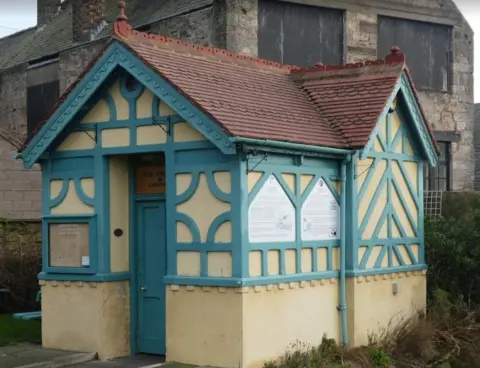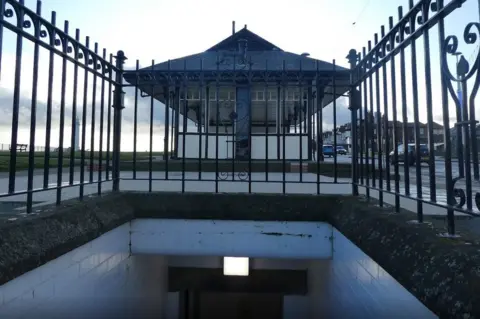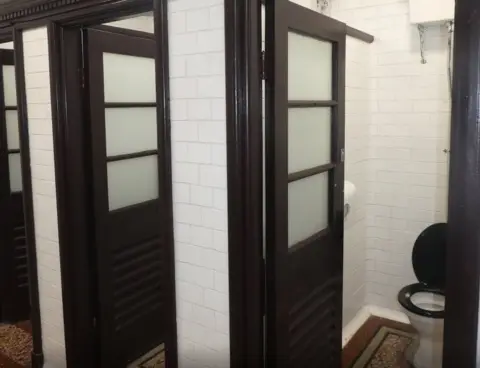Bank Hill toilet and Seaburn ladies' lavatories listed
 Historic England
Historic EnglandTwo early examples of rare ladies loos have been given Grade II listed status.
The Bank Hill toilet in Berwick opened in 1899 while the loos on the seafront at Seaburn in Sunderland date from between 1901 and 1904.
Public toilets were introduced in the second half of the 19th Century but the vast majority were for men only.
Historic England said the first ladies loo opened in Oxford Circus in 1884 but women's public toilets were "relatively uncommon" until after World War One.
 Historic England
Historic EnglandVeronica Fiorato from Historic England said: "Many people often think of listed buildings only as churches, castles and grand stately homes but buildings like toilets are also an important part of our nation's rich history.
"The lavatories in Berwick and Seaburn reflect the emerging changing social status of women at the beginning of the 20th Century.
"The appearance of toilets like these represented the gradual opening up of a world of new leisure and work opportunities previously unavailable to women."
 Historic England
Historic EnglandHistoric England said there were various reasons why women were not given public toilets.
In the Victorian era ladies were deemed too modest to "answer the call of nature" away from home, while another theory suggests it was a "cynical ploy" to control women's movements and ambitions becoming known as the "urinary leash".
On its first day, the Bank Hill toilet attracted 62 customers.
It remained as a toilet until the 1950s, after which it was used for council storage and later an ice cream parlour called Loovre.
The Seaburn toilets closed in the 1960s but reopened in 2018.
Other North East toilets to have been listed include Roman loos at Housesteads Fort on Hadrian's Wall and a "defensible latrine" pillbox at Seaton Sluice on the Northumberland coast.

Follow BBC North East & Cumbria on Twitter, Facebook and Instagram. Send your story ideas to [email protected].
